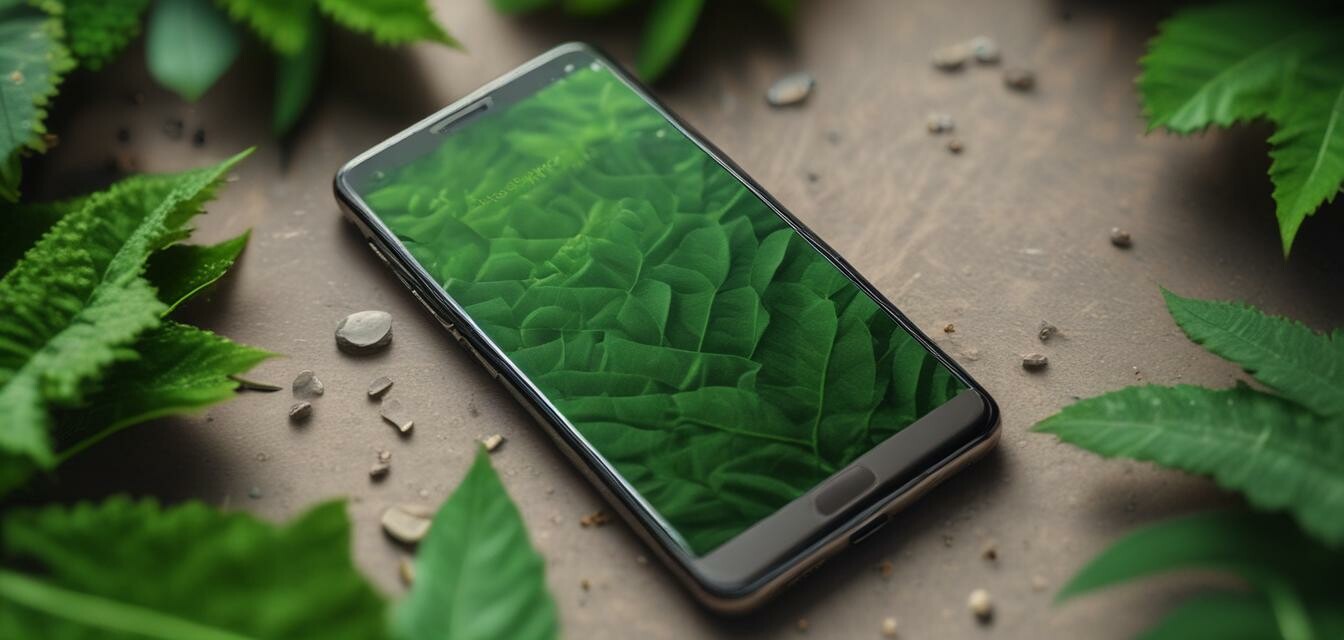
Sustainability in Luxury Phones: What's New in 2025
Key Takeaways
- Luxury smartphone brands are emphasizing sustainable materials in their devices.
- Innovations in eco-friendly production methods are becoming more prevalent.
- Consumer demand for environmentally responsible products is influencing brand strategies.
- Recycling programs and buy-back initiatives are on the rise.
- Transparency in sourcing and manufacturing is becoming a priority for luxury brands.
The world of luxury smartphones is evolving rapidly, particularly in the realm of sustainability. As we step into 2025, luxury brands are not just focusing on aesthetics and performance but are also paying attention to their environmental impact. Let's explore how these brands are integrating sustainability into their fabric, ensuring a greener future while catering to their affluent clientele.
Emerging Trends in Sustainable Luxury Smartphones
Luxury smartphone manufacturers are pivoting towards eco-conscious practices, driven by shifting consumer expectations and regulatory pressures. Here are some notable trends:
| Trend | Description |
|---|---|
| Sustainable Materials | Use of recycled metals, bioplastics, and sustainably sourced materials in device production. |
| Energy-Efficient Manufacturing | Implementation of energy-efficient processes that reduce carbon footprints during production. |
| Innovative Packaging | Adoption of eco-friendly packaging solutions that minimize waste and use recyclable materials. |
| Responsible Sourcing | Commitment to ethically sourcing raw materials while promoting fair trade practices. |
The Role of Consumer Awareness
As consumers become more eco-conscious, their preferences greatly influence luxury brands. The expectation to blend functionality with sustainability is no longer just a trend; it's a requirement. Brands that adopt sustainable practices are more likely to thrive in this competitive market. For example, many users are looking for eco-friendly buying guides to make informed decisions.
What Brands Are Doing to Enhance Their Sustainability Efforts
Luxury mobile phone manufacturers are taking various approaches to embrace sustainability:
- Recycling Initiatives: Several brands are launching recycling programs that encourage customers to return old devices for responsible recycling.
- Design for Durability: By focusing on high-quality materials and craftsmanship, luxury phones are expected to last longer, reducing electronic waste.
- Solar-Powered Chargers: A few brands are experimenting with solar technology to create premium chargers that reduce electricity consumption.
- Partnerships with Environmental Organizations: Collaborations with NGOs to protect ecosystems and promote sustainable practices in technology.
Innovative Technologies Impacting Sustainability
Innovation is at the heart of sustainability in luxury smartphones. Technologies that promote energy efficiency, resource conservation, and materials recycling are poised for growth:
| Technology | Description | Impact |
|---|---|---|
| Biodegradable Cases | Phone cases made from plant-based materials that decompose without harmful residues. | Reduces plastic waste in landfills. |
| Energy Management Systems | Advanced software to optimize battery life and minimize energy consumption. | Extends device lifespan and energy efficiency. |
| Responsible Mining Techniques | Methods to extract rare materials with minimal environmental disruption. | Less habitat destruction and pollution. |
The Importance of Transparency
Luxury brands are increasingly focusing on transparency regarding their sourcing and production practices. Customers want assurance that their luxury phones are produced ethically and sustainably. Here’s how brands are achieving this:
- Detailed Supply Chain Reporting: Providing clear insights about where materials come from and how products are made.
- Certification Programs: Obtaining certifications for sustainable practices to build trust with consumers.
- Engagement with Eco-Conscious Consumers: Solicit feedback and engage consumers in discussions about sustainability efforts.
Embracing Circular Economy Models
Many luxury brands are exploring circular economy models that emphasize reuse and recycling. An eco-friendly approach extends the life of products and materials. Some notable adaptations include:
- Trade-in programs offering credit for old devices, promoting recycling.
- Refurbished luxury models that retain value while minimizing waste.
- Modular designs that allow for easier repairs and upgrades.
Pros
- Increased consumer loyalty from eco-conscious buyers.
- Positive brand image associated with sustainability efforts.
- Reduced regulatory penalties through compliance with eco-friendly laws.
Cons
- Higher upfront costs associated with sustainable practices.
- Potential limitations on material availability.
- Challenges in marketing sustainability effectively.
Conclusion
As we navigate through 2025, the luxury smartphone market is undergoing remarkable transformations driven by sustainability. The integration of eco-friendly practices, innovative technologies, and a commitment to transparency are paving the way for a future where luxury does not come at the expense of our planet. For more insights into the latest luxury trends and products, check our section on News and Trends.
